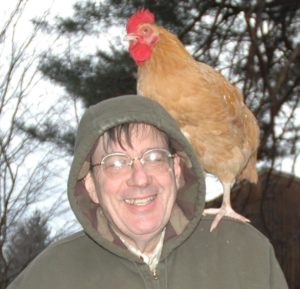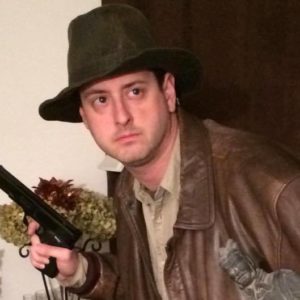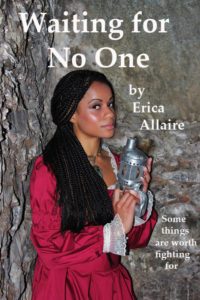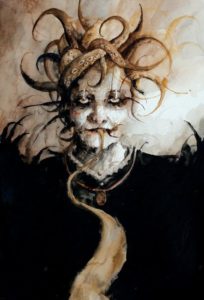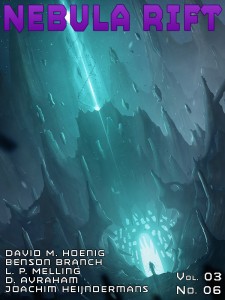Jun 22 2016
Interview with Jonathan Vos Post
Part of a series of interviews with the writers for the upcoming speculative fiction anthology, Clash of the Titles. the anthology is the brain child of Glen Bavel, who conceived of an endearing conceit: he provides a list of titles and the members of his Facebook workshop, Writing the Short (SF) Story, use it as a starting point for a short speculative fiction story.
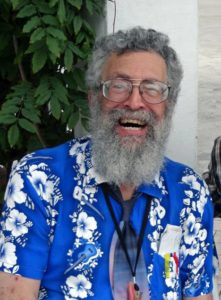 What does Ralph Nader. Richard Feynman, Lovecraft and Quantum Cosmology have in common? All of these apparently disparate elements come together through the talented penmanship of Jonathan Vos Post in his latest story, “Unsafe at Any Speed,” Vos Post’s contribution to the upcoming anthology Clash of the Titles.
What does Ralph Nader. Richard Feynman, Lovecraft and Quantum Cosmology have in common? All of these apparently disparate elements come together through the talented penmanship of Jonathan Vos Post in his latest story, “Unsafe at Any Speed,” Vos Post’s contribution to the upcoming anthology Clash of the Titles.
Jonathan Vos Post, a scion of the New York City publishing industry, has been a professional published author from the age of twelve, currently boasting over 4,700 publications, presentations, and broadcasts in his resume. Vos Post’s credentials are impressive, as are writers he’s worked with, a list that includes Ray Bradbury, Isaac Asimov, Sir Arthur C. Clarke, and Nobel Laureate Richard Feynman. I had the privileged to discuss with Jonathan his writing in general, and his contribution to the upcoming anthology, Clash of the Titles, in particular.
You’ve had an impressive career and worked with some of the greats. Who has inspired you the most? Whom do you admire?
Aside from my unconscious which sometimes sends me published songs and poems in dreams, which I then recall and scribble down on awakening. (I also dream equations and write them down when I wake up, including a key change to Voyager 2’s flyby of Uranus. After I dreamed the equation, it was confirmed by Project Scientist and later JPL Director, Ed Stone): Aside from that, I would have to say: Blake, Borges, Burroughs, Cervantes, Chekhov, Chandler, Chaucer, Dante, Dickenson, Einstein, Flaubert, Franklin, Goethe, Grass, Hammett, Hawthorne, Hemingway, Irving, James, Kerouac, Lewis, Lovecraft, Márquez, Milton, Nabokov, Oates, Paz, Poe, Quine, Rabelais, Scott, Shakespeare, Thoreau, Tolkien, Twain, Urquhart, Verne, Wells, Xenophon, Yeats, Zwicky.
I understand you found about about this project through Facebook, what made you submit? Would you do it again?
We do everything an infinite number of times, as we are all a simulation.
How did you come up with your story?
My characters take over, and write down what they say and do, while hovering ectoplasmically over my self while I edit on the fly.
A lot has been said about the workshop process wherein the editor takes a video meeting with the writers to help offer instant feedback and share the editing process along the way. How did you find this process; what are your feelings about it?
Video? I’ve been nurtured in, and run writing workshops for poetry, fiction, dramatic plays, comedy, screenplays, teleplays, and science papers through video.
What do you think is the most important thing that readers know about Clash of the Titles?
It is really good, in variety and quality of imagination and nerve, and well-edited.
Did you enjoy working with Gil Bavel, the editor? Would you work with him again?
At the drop of a hat. Any hat. Anywhere in the Solar System.
What do you think is the most important thing for booksellers, libraries and other outlets to know about Clash of the Titles that they don’t know?
Some of the authors have massive readerships and sales bases already.
Would you recommend the process to other writers; how did you find working with this editor to be compared to others?
I’ve had over 100 coauthors and hundreds of editors. That’s the idea — social networks do more than people alone can do on desert islands.
What excites you most about the process, and the anthology in general?
Big Names, and Big Talents.
Did your story grow in ways you didn’t expect due to the workshop nature of the process? How?
EVERY story does. Isaac Asimov only wrote ONE of his novels from an outline, and hated the constrictions. He told me: “If I cannot surprise myself, how can I surprise my readers?”
Please describe your favorite experience in working with Clash of the Titles.
Seeing that rewrites made it better.
What other projects are you working on, besides Clash of the Titles.
.At any moment, I am working on several novels, several novellas, novelettes, short stories, adding to roughly a hundred works of fiction and a thousand poems annually. I simultaneously publish academic papers in Astronomy, Biology, Chemistry, Economics, Mathematics, Physics, Psychology, and Sociology. My recent publications include:
.* “How often does a bush become a bear?” Atlas Poetica #25, Summer 2016.
* Atlas Poetica #24. ‘Street Food of East London’ for ATPO 24. Interplanetary Small Satellite Conference 2016 25-26 April at Caltech, Pasadena, California
2 poster presentations by me:
* “Magnetic Mirror Math for Antimatter-Matter Rocket” [complete paper, plus 2 40″ x 28″ posters]
* “Risk Assessment of Freeman Dyson’s Noah’s Ark Egg strategy” [abstract and bullet chart]
QUANTUM NETWORKS 2016
The workshop took place in Barcelona from 30 March to 1 April , sponsored by the Foundational Questions Institute (FQXI) under the project “Quantum Bayesian networks: the physics of nonlocal events”. my poster (typed paper from handwritten): “Map Quantum Cellular Automata to Godel Numbers”
* Fifth International Conference on Infectious Disease Dynamics 2015 .
Poster and paper using science fiction and police procedural to combat Ebola’s outbreak, not in Monrovia, Africa, but in Monrovia, Southern California.
* FOUR COMPETING THREADS IN THE DISCOURSE ON MATHEMATICAL PHYSICS PEDAGOGY {by Jonathan Vos Post and Dr. Christine Carmichael} ICERI2015, the 8th annual International Conference of Education, Research and Innovation, Seville (Spain), on the 16th, 17th and 18th of November, 2015.
* “Metasonnet: Day Mom Died” in SGVPQ 67 [Vol.67, San Gabriel Valley Quarterly, p.31];
* My “Bell Letters: 3 Major American authors mutate a famous rhyme about Bells of London” in the Altadena Poetry Review. NOMINATED FOR PUSHCART PRIZE.
* My “Tales from Magic Dragon China #125: Unimpeached”, a Tanka sequence as a loose adaptation of an ancient story “Peach Woods” by Tao Qian [317?-420?] Issue #101 (May 2015) of Dreams & Nightmares :: A Magazine of Fantastic Poetry
* “Dawn of the Holographic Notepad” has been accepted for Issue 3 of Black Wire
*”Ontological Determinism, Non-locality and Bohmian Quantum Mechanics”, by Maurice Passman (Adaptive Risk Technology, Ltd.), Philip V. Fellman, American Military University Charles Town, WV, and Jonathan Vos Post
* My chapter in “Conflict and Complexity” [Springer Science+Business Media New York]
* “Quantum Nash Equilibria and the Nash Bargaining Problem”, by Philip Vos Fellman Southern New Hampshire University Manchester, NH, and Jonathan Vos Post https://www.researchgate.net/publication_267950782_Quantum_Nash_Equilibria_and_the_Nash_Bargaining_Problem.
“Unsafe at Any Speed,” will be featured in the upcoming anthology, Clash of the Titles. Vos Post describes the story as that which grew under the tender loving care of a good editor, and spun from thereads that include the title of Ralph Nader’s bestselling book, Vos Post’s personal and professional friendship with Nobel Laureate Richard Feynman, his research on local celebrity graveyards, all the Deal with the Devil stories he’s ever read, and his Lovecraftian goal of connecting Fantasy, Horror, Science Fiction, and the cutting edge Quantum Cosmology which is Vos Post’s day job.
You can see Jonathan Vos Post extensive here.
You can visit Jonathan Vos Post’s here.
Or, connect with him on Facebook or visit his live journal.
